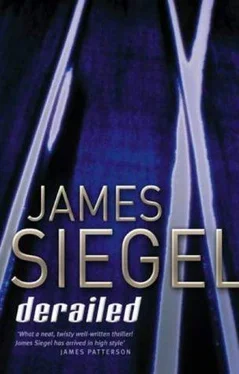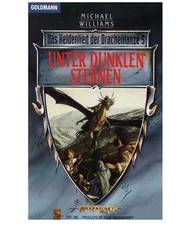“So . . . is there anything else I can — ” I began, but was interrupted.
“ When was that again? The last time you saw him?” Palumbo asked, pencil poised and waiting — and I was reminded of an image from one of those British costume dramas that continuously turn up on Bravo: the Crown’s executioner holding the ax above his head, only awaiting the signal to strike.
“I don’t remember, exactly,” I said. “Two weeks ago, I guess.”
I guess. Couldn't hold someone to a guess, could you? Couldn’t drag them downtown and haul them before the court on a wrong guess.
“Two weeks ago? When he delivered your mail?”
“Yes.”
“Did you ever get together with Mr. Boyko, you know, socially?”
Yes, once in a bar. But it was business.
“No.”
“Did Mr. Boyko ever talk to you about himself?”
“How do you mean?”
“Did Mr. Boyko ever talk about himself? To you?”
“No, not really. About mail . . . you know.”
“Mail?”
“Deliveries. Where I wanted something sent. Things like that.”
“Uh-huh. That’s it?”
“Pretty much. Yes.”
“Well, what else?”
“Excuse me?”
“You said pretty much. What else did he talk to you about?”
“Sports. We talked about sports.”
“Mr. Boyko is a sports fan, then?”
“I guess. Kind of. We’re both Yankee fans,” trying hard to keep in the present tense when I was talking about Winston — not so easy, when I could picture him lying stiffly at the foot of the mound of garbage.
“That’s all, then. You talked about mail and sometimes about the Yankees?”
“Yes. As far as I can remember.”
“That’s it?”
“Yes.”
“Would you know how Winston came into ten thousand dollars, Mr. Shine?”
“What?” You heard him.
“Mr. Boyko had ten thousand dollars in his apartment. I was wondering if you had any idea how he got it.”
“No. Of course not. How would I . . . ?” I was wondering something: if the police were allowed to check with David Lerner Brokerage and see how much stock I’d sold. It wouldn’t look good, would it? It would look, okay, suspicious. But then, why would they suspect me of giving ten thousand dollars to Winston? I was panicking for no good reason.
“There were some computers stolen from your agency. One from this floor.”
“Yes, that’s right.”
“Did you ever see Mr. Boyko up here when he wasn’t supposed to be?”
Computers. Palumbo was asking me about computers. Of course. Winston the thief. Winston the ex-con. He was talking to me because he suspected Winston had gotten that money from stealing some computers. He needed witnesses. Winston had stolen some computers and he’d made some money and taken off.
“Now that you mention it, I did see him up here one night when I was working late.”
“Where, exactly?”
“Just around, you know. In the hall here.”
“Was there any reason for him to be up on this floor after work?”
“Not that I can think of. I thought it was kind of strange at the time.” I was killing him again, I thought. First when he was alive and now when he wasn’t.
“Did you challenge him about that? Ask him what he was doing there?”
“No.”
“Why not?”
“I don’t know. I just didn’t. He was down the hall — I was in my office. I really didn’t know if he was supposed to be here or not.”
“All right, Mr. Schine.” Palumbo shut his notebook and placed it back into his hip pocket. “I think that’s all I have for you today. Thank you for taking the time to talk to me.”
“You’re welcome,” I said, even as I wondered about that word. Today.
“I hope you find him.”
“So do I. You know, Mr. Boyko was pretty good about seeing his parole officer. He hadn’t missed a meeting. Not one. You did know he’d been in prison, right?”
“I think I may have heard something about that. Yeah, sure. Is that who told you he was missing? His parole officer?”
“No,” Palumbo said. Then he looked straight into my eyes, the way lovers do when they want you to acknowledge the sincerity of their feelings.
“Mr. Boyko and I had a kind of working relationship,” he said. “Understand?”
No, I didn’t understand.
As I walked Detective Palumbo out into the hall, wondering if the detective was going to go interview someone else—he didn’t. Still not understanding that statement: Mr. Boyko and I had a kind of working relationship.
And what kind of relationship was that?
It was only when I replayed the interview later in the day, wondering if I’d been okay with my answers, meticulously going over each Q&A to see if I’d slipped up, given the detective any cause, no matter how minute, to distrust me, that it occurred to me what kind of relationship any ex-con can have with any police detective.
What were the terms?
Because something else was bothering me. Something that didn’t make sense. It was this. People are reported missing all the time—isn’t that the usual quote you hear from bored and jaded police detectives on the evening news? The distraught parent complaining about police inaction, how their teenage daughter or son was missing for God knows how long, and the parents knew something was wrong, of course, they knew, but still the police did nothing much but take a report. Because people disappear all the time. That’s what the bored detectives say. And if they looked for every kid who didn’t come home, they’d have no time left to go after the serious criminals.
And these are kids they’re talking about — kids that they don’t exactly jump into action after. And Winston was not a kid. He was a grown man — and by the usual social standards, not a very important one. In fact, on the scale of important people, of people the police need immediately to start looking for, he’d probably be next to last, just above black transvestite heroin addicts, maybe.
Yet just two weeks after this ex-con doesn’t show up for work, a police detective is there looking for him.
What were the terms?
So I replayed the detective’s words again. Mr. Boyko and I had a kind of working relationship, understand?
And yes, I was beginning to understand now.
What were the terms?
I’d seen all the movies, I’d watched the TV shows, I’d read the papers. Police detectives were allowed to lean on ex-cons for information. Ex-cons were inclined to give it to them so as not to be leaned on. So that maybe they’d look the other way when they were trying to supplement their income with, say, a little computer theft.
What were the terms?
I know the terms, Winston.
Why don’t you state them for me so there’s no confusion.
That night in Winston’s car by the number seven train.
Why don’t you state them for me.
And why was that? Why did Winston need me to state them for him, need to hear me say the words out loud? Because in the end, it’s the words that’ll set you free. You need to give them the words if they’re ever going to believe you.
State them for me.
Policemen and ex-cons with only one kind of working relationship, really, and this is the way it works. This way. They ask and you tell. You whisper. You snitch.
State them.
If you don’t have the words, if you don’t have them sitting there on some tape somewhere, how will they ever believe you? A company big shot, a bridge and tunneler, an honest to God white-collar commuter, and he wants you to what? Say again, Winston. . . .
Читать дальше












